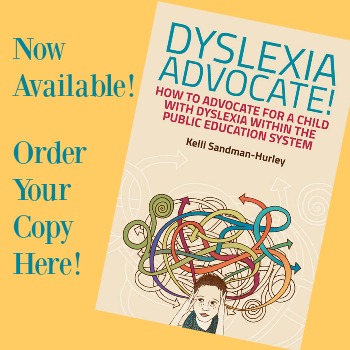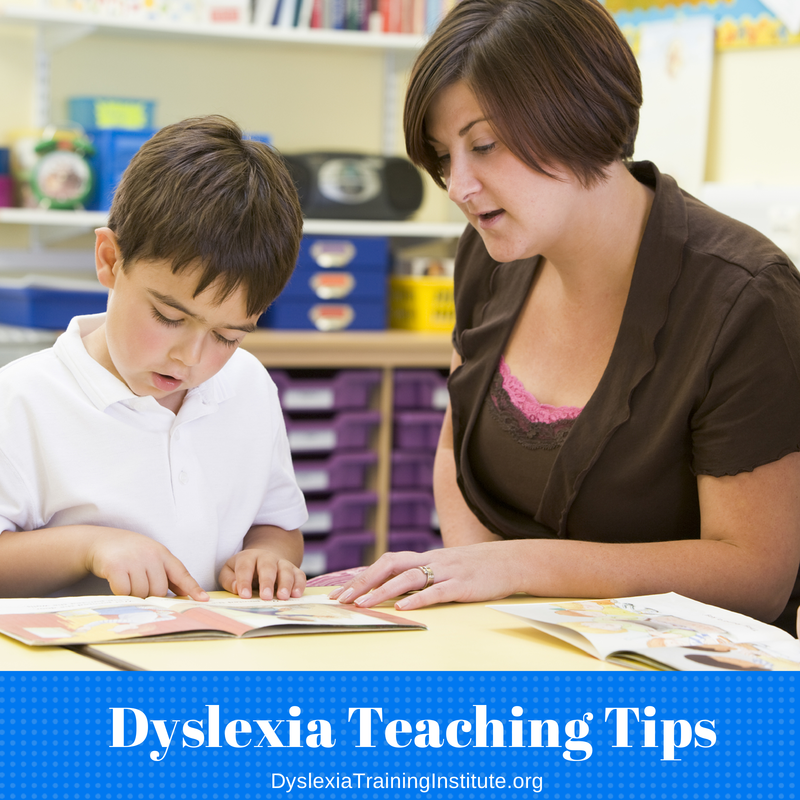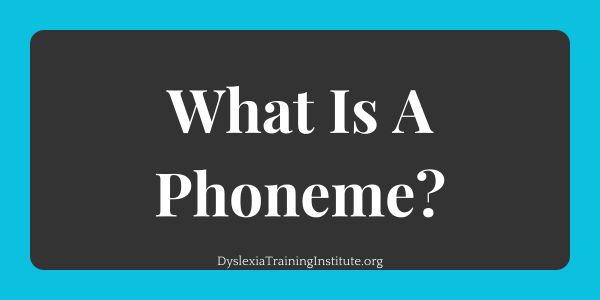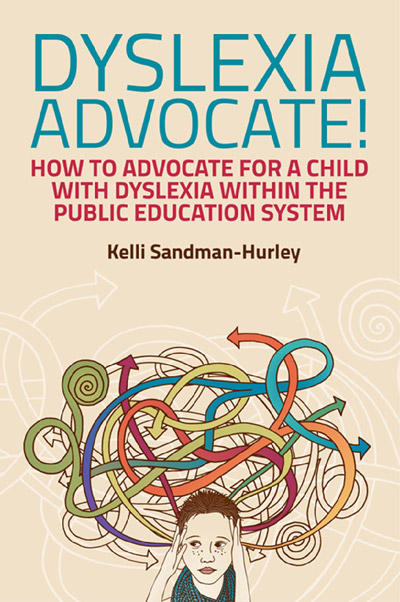Knowing the facts about dyslexia is the first step to advocating. Dr. Kelli Sandman-Hurley breaks down nine of them for you below.
Dyslexia Fact #1: Dyslexia is not a vision problem and cannot be remediated by color overlays or vision therapy. Sure, those may help, but for true dyslexia, an intensive remediation is necessary. People with dyslexia see things the way people without dyslexia do, therefore if vision problems are suspected, they need to be ruled out or remediated before a diagnosis of dyslexia can be made.

Dyslexia Fact #2: Reversing letters and numbers is normal through the first grade, after that it is a red flag for dyslexia.

Dyslexia #3: Dyslexia occurs on a continuum; one student can have mild dyslexia while his classmate can have severe to profound dyslexia. They both have dyslexia and they both require remediation; one will just need less remediation than the other.

Dyslexia #4: Dyslexia can run in families and it is common for a parent to realize they struggled in school when they see their child struggling.

Dyslexia Fact #5: There is no “cure” for dyslexia, because it is not a disease.

Dyslexia Fact #6: Students with dyslexia do qualify under IDEA and dyslexia is listed as an eligible condition under the definition for Specific Learning Disability (SLD) – don’t let anyone tell you otherwise.

Dyslexia Fact #7: Students with dyslexia can and should be identified as early as kindergarten.

Dyslexia Fact #8: Dyslexia can be diagnosed by a properly trained professional. However, it is not currently a medical condition and is not usually diagnosed by a pediatrician.

Dyslexia Fact #9: Dyslexia is real, it exists and it can be remediated by a correctly trained educator using an Orton-Gillingham-based approach.







How do we help students who graduate high school but can not get into college because they can not pass the entrance exams? Or those who graduated from an online high school because they couldn’t pass the public high school required exam to graduate and now can not get into a college because the college doesn’t recognize the high school diploma?
I would love to know this too. I have a junior that is really interested in college and scholarships but so far all we have seen require an ACT or SAT score of a certain level that just won’t happen for us. The only thing I can think to do is to pay out of pocket for enough classes that she can get accepted without requiring entrance examinations and skip the whole scholarship thing??
These students are entitled to ask for
special academic treatment under federal disability law.
Such “accommodation” can include extra time to take
exams, alternative exam formats such as oral or take-home,
and classroom assistance such as the help of a note taker.
My son went to Vincennes University in Indiana because they did not require the ACT. He did very well. After he received his associates degree, he transferred to University of MN.
How can i help my daughter?
I was on of those “can’t go to college” students. I was lucky to.have a homeroom all throughout high school that taught Project Success. I was tested by Dr. NASH AT Oshkosh and was able to get accepted into his program and the collage. There was no other way for me to get into a college otherwise.
My son has mild Dylesxia. He need reading aid. For this I’m with visual edge. What’s your suggestion?
Very good post.I read it carefully.I think it is so important post.Thanks a lot for sharing this.
Yeah!!! what a fantastic post.I am very glad to see this.How can i help the students?Thanks a lot for this.
What an amazing post.I really like this post.I would love to know this too.Congratulation for sharing this post.
PLEASE tell me how I can find a properly trained professional that can identify dyslexia as early as Kindergarten. I have not been able to find one. I suspect that my son is dyslexic. He has many signs. I have mentioned repeatedly that we have a S T R O N G family history of dyslexia. The school doesn’t screen for dyslexia, and states that we should wait for testing (for a SLD) until he is in third grade. I say hogwash! Why wait? But unfortunately, I have not been able to find “a properly trained professional” in Tucson, Arizona. Any thoughts? He has already been to a neurologist that stated there is “something there” but told me I need to wait and retest him when he is older. He is 6 years old.
So what kind of professional can diagnose dyslexia? And what are the symptoms? Need some basic information for the general public.